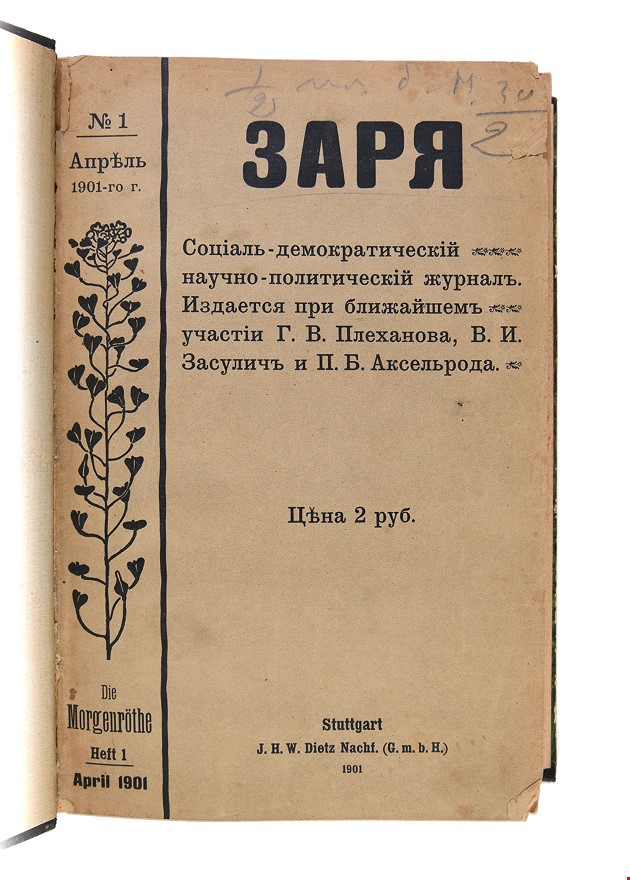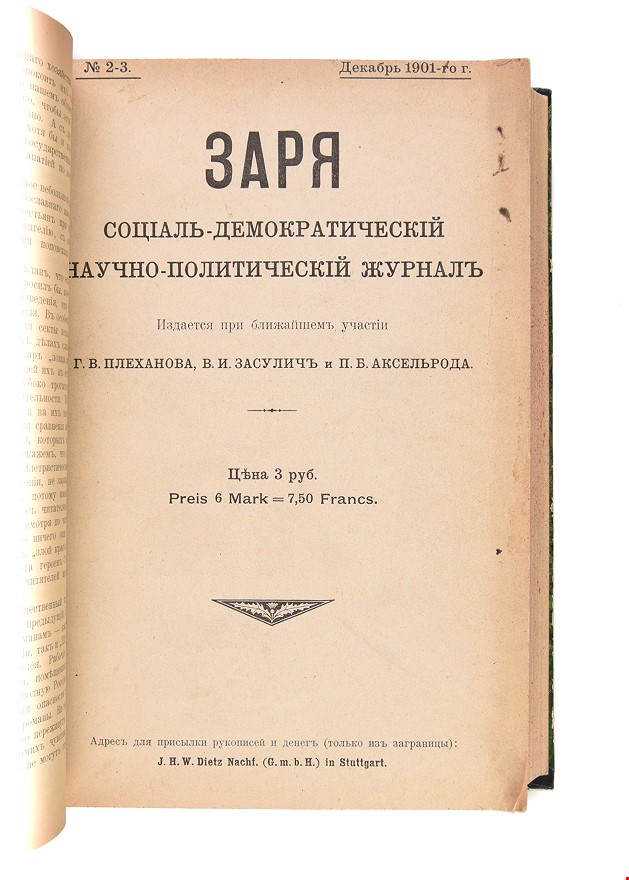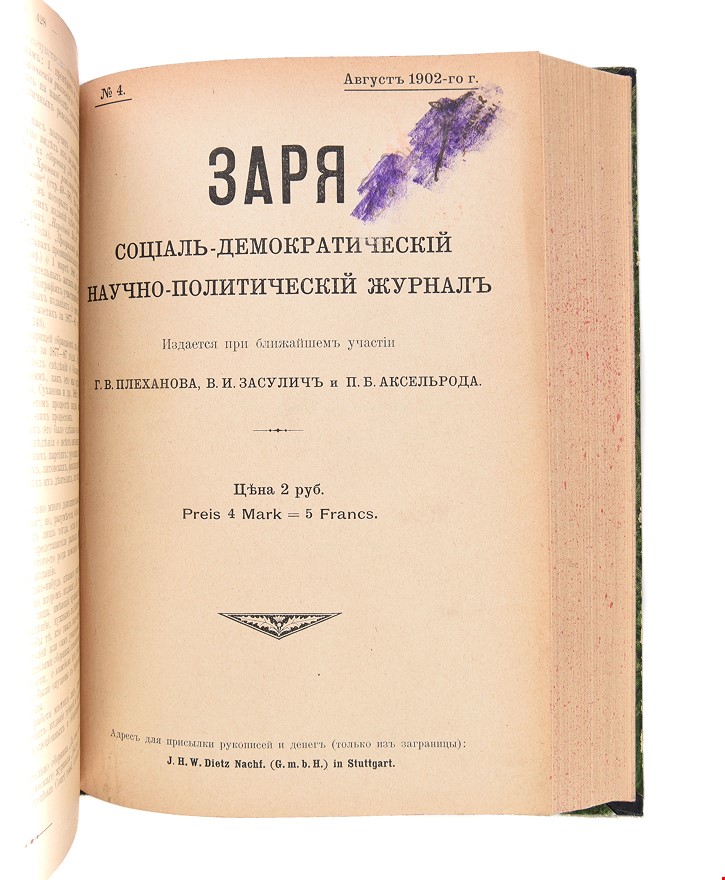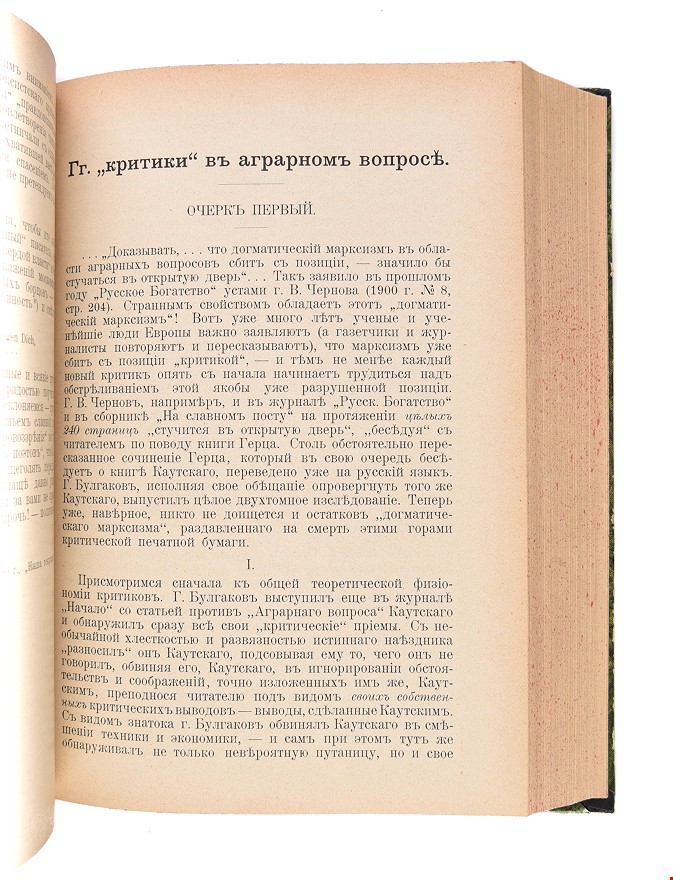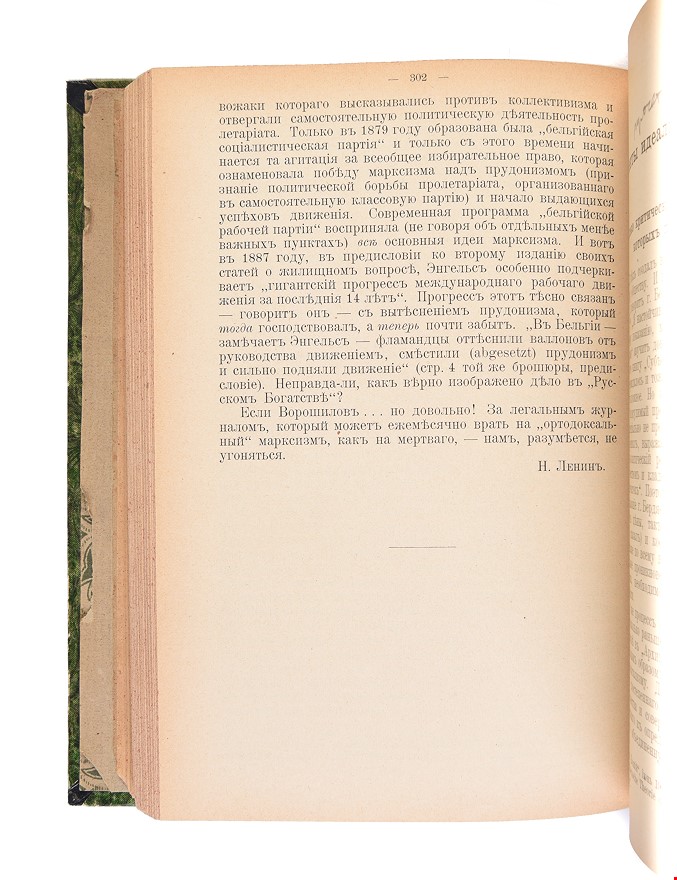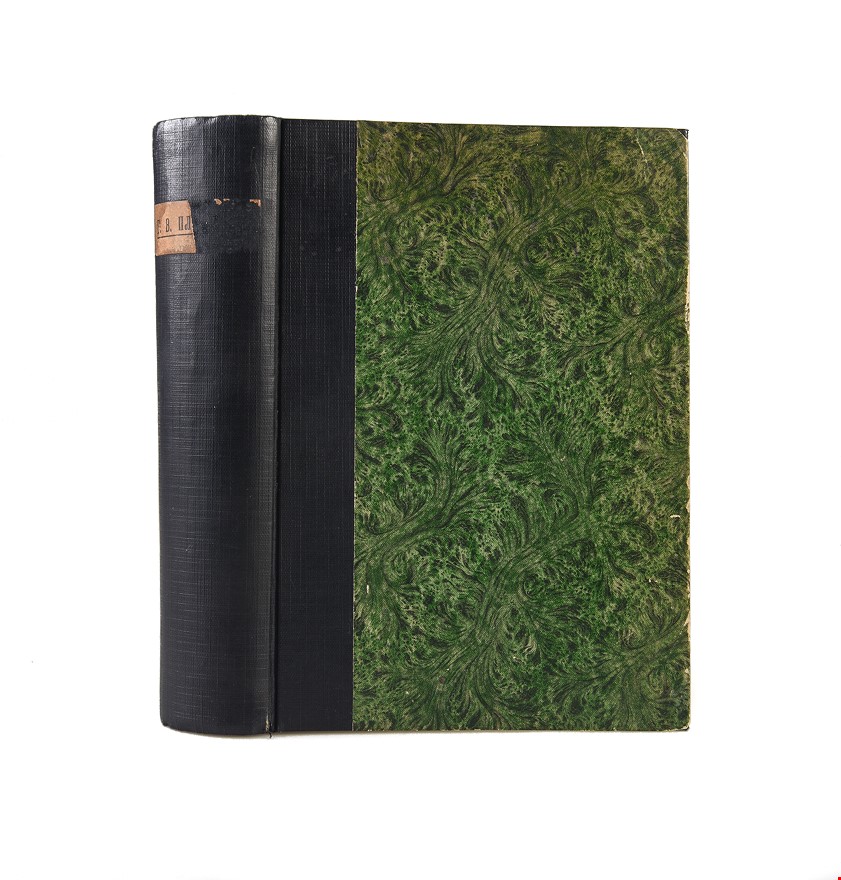Zaria: sotsial'-demokraticheskii nauchno-politicheskii zhurnal. Nos. 1, 2-3 & 4 [all published]
LENIN. ULYANOV Vladimir Ilyich. (1901 - 1902.)
£5000.00 [First Edition]
Please contact us in advance if you would like to view this book at our Curzon Street shop.
CONTAINING THE FIRST APPEARANCE IN PRINT OF THE PSEUDONYM 'LENIN'
First editions. Three volumes bound in one. 8vo. [6], 288; [4], 428; iv, 39, [1], 87, [1], 251, [1] pp. Early twentieth century quarter cloth with green marbled paper covered boards, remnants of printed paper label to spine, patterned endpapers, red speckled edges, with the original front wrapper of volume one bound-in (pencilled notation to title page of Issue 1, contemporary ink ownership inscription clumsily erased by purple pencil to title page of Issue 4, otherwise internally clean, an excellent set). Stuttgart, J.H.W. Dietz Nachf.
All four issues of the extremely scarce Russian revolutionary Marxist journal Zarya (Dawn), containing the first appearance in print of Vladimir Ilyich Ulyanov's pseudonym 'Lenin' – the most famous of the 160 pseudonyms he used throughout his life.
The journal was produced by the same Editorial Board as the clandestine Russian revolutionary newspaper Iskra (The Spark), the principals of which were Lenin and Georgi Plekhanov. Zarya was intended as a companion publication to Iskra, containing more substantial theoretical works on social and economic subjects to compliment the function of Iskra as official organ of the Russian Social Democratic Labour Party (RSDLP). Zarya was printed legally in Stuttgart by J.H.W. Dietz, the same publisher as Lenin's incendiary political pamphlet What is to be Done? (1902). The first issue appeared in April 1901, with the second and third issues following as one volume in December 1901, while the fourth and final number appeared in August 1902.
The 'Lenin' article in question appears across pages 259-302 of issues 2-3 under the title 'Gg. “kritiki” v agrarnom voprose' ('The “Critics” on the Agrarian Question. First Essay’) and is signed 'N. Lenin'. "No one is quite sure what if anything the ‘N’ signified, although some mistakenly assume it stood for ‘Nikolai’. Similarly, it is uncertain where he came up with ‘Lenin’ as a surname though it is often believed it was named after the Lena river in Siberia" (Henderson, The Spark That Lit the Revolution, pp. 75-76).
The article represented the first four chapters of Lenin's fragmentary work The Agrarian Question and the "Critics of Marx", which was not published in its entirety until 1908. "This work expounded and developed the Marxist theory of the agrarian question and was a critique of Russian and international revisionists' works" (Guha, 'Lenin on the Agrarian Question, p. 65).
The journal also includes an additional four articles by Lenin signed in various of his other pseudonyms: the first issue contains a single article titled 'Sluchainyi zametki' ('Casual Notes') on pp. 247-270, signed in one of his early pseudonyms "T. Kh"; issues 2-3 includes 'Goniteli zemstva i Annibaly liberalizma' ('The Persecutors of the Zemstvo and the Hannibals of Liberalism') on pp. 60-100 and 'Vnutrenneye obozreniye' ('Review of Home Affairs') on pp. 361-403 signed 'T. Kh'; while the fourth and final issue contains Agrarnaya programma russkoy sotsial-demokratii' ('The Agrarian Programme of Russian Social-Democracy') on pp. 152-183, signed 'N. Lenin'.
Of these articles, two proved to be particularly controversial, with both 'The Persecutors of the Zemstvo and the Hannibals of Liberalism' and 'The Agrarian Programme of Russian Social-Democracy' sparking serious disagreements amongst the Iskra Editorial Board. In both cases Lenin was forced under pressure from Plekhanov and Pavel Axelrod to accept certain revisions to the final published version in Zarya. These divisions anticipated the wider 1903 Bolshevik-Menshevik split in the RSDLP and contributed to the short lifespan of Zarya, which was in turn compounded by concerns over the heavy theoretical content of many of the articles and the usefulness of such academic debates to the revolutionary movement.
Stock Code: 243598
